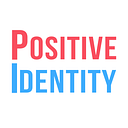How to Organize
During a time of unprecedented rights rollbacks, the education needed to organize is more important than ever.
From writer Reed Forrester
In a ruling that reverses fifty years of precedent, the Supreme Court overturned Roe v. Wade this morning, stripping bodily autonomy from current and future generations of women and giving states a green light to ban abortion without exception for rape, incest, or certain medical complications. Across the country, people of all backgrounds and beliefs are seeking ways to stand in solidarity with those whose safety and freedoms have been erased. To complicate things further, the ruling also puts a number of other privacy-based rights in jeopardy, including the rights to contraception, same sex marriage, and same sex relationships. In addition, this week the court also ruled against New York’s restrictions on open carry weapons, and curtailed the right to sue police officers who fail to read Miranda rights. With all of this upheaval, you might be wondering what you can do to stand up for your own rights and those of your loved ones. Here are some ways to get involved.
1. Attend Events in Your Area
Peaceful protests do have a positive impact. Even if you live somewhere where your rights are still protected, show up to stand in solidarity with those who do not have the safety and privilege that you do. Protests demonstrate to lawmakers that voters are taking notice of undemocratic actions and will make them face the consequences come November. They also can help remind you that you’re not alone in your convictions. To find events near you, keep an eye on local social media feeds, especially Twitter and Instagram, and check local news outlets for updates on protests in progress.
When attending protests, safety is always first. Bring lots of water, more than you think you need. Wear comfortable shoes and sunscreen, leave your expensive items such as jewelry at home, and if possible, make plans to attend the event with friends. If COVID is a concern for you, bring a mask. Don’t forget to check for dress codes (pro-choice rallies are requesting that attendees wear green) and to bring a colorful, homemade sign!
2. Plan to Vote
If you’re not already registered to vote this November or if your registration is out of date, go to https://vote.gov and register now. In November, plan a time to drop off your ballot or vote in person and put it on your calendar.
3. Organize Events
Can’t find any events near you? Organize your own! Anyone can organize a protest or vigil and publicize it on social media. You do need a permit to march in the street or obstruct pedestrian traffic, but smaller protests that use sidewalk space in an orderly manner can be organized without prior approval. Organizing your neighborhood can be a great way to meet like-minded people and give back to your community.
4. Donate Your Time or Money
Laws and court rulings are not the end of the road. If you want to have a deeper, long-term impact on a movement, the best way to do so is to involve yourself in grassroot work on the ground. Many organizations are actively working to preserve the rights of women and other Americans. These groups often rely entirely on public support and will be grateful for whatever time or money you are able to offer. Organizations such as The Guttmacher Institute, The Center for Reproductive Rights, and NARAL Pro-Choice America can be great places to learn more and get connected to the movement. Locally, you can get involved with organizations that provide direct aid to those in need. For example, many women’s health centers and organizations such as Planned Parenthood need volunteer clinic escorts and drivers to help assist and protect women who seek medical care. Other organizations maintain abortion funds for women who lack the resources to get the care they need.
5. Contact Your Lawmakers
This is especially applicable to those who live in states where your rights are already or may soon be restricted, but no matter where you live, contacting legislators can help create change. Unlike Supreme Court justices, your legislators are elected by their constituents, including you, and many of them face tough reelection campaigns in the fall. Letting them know where you stand on issues that matter to you can influence them to push for legislation that makes you and other constituents more likely to vote for them in November.
